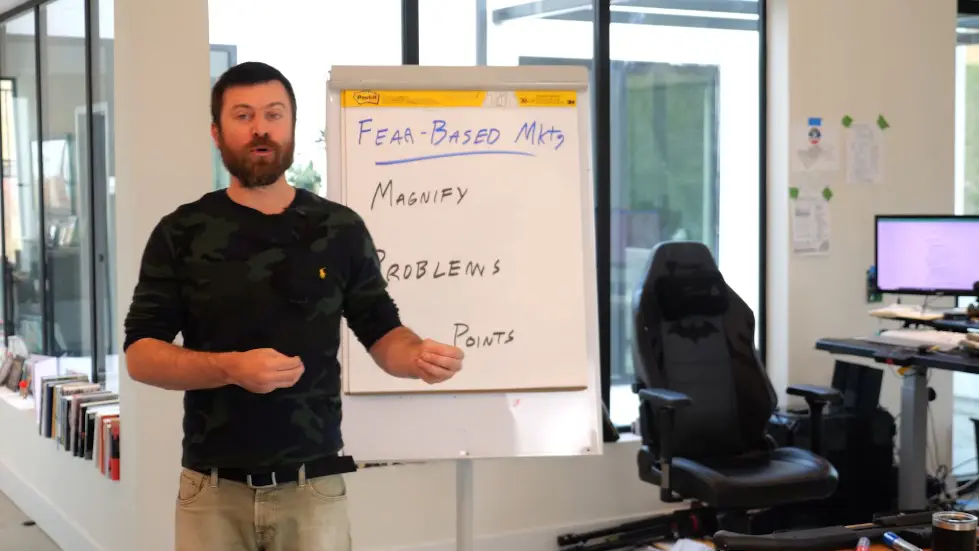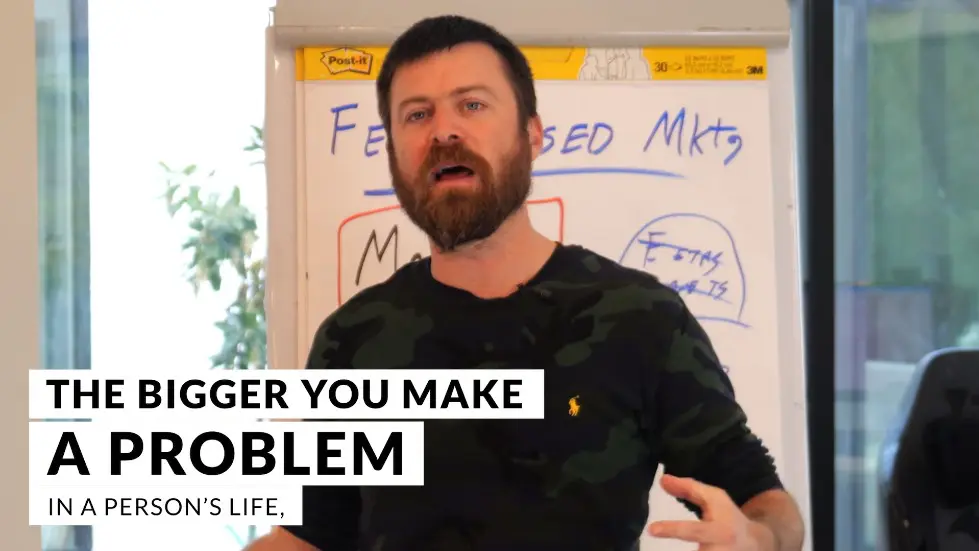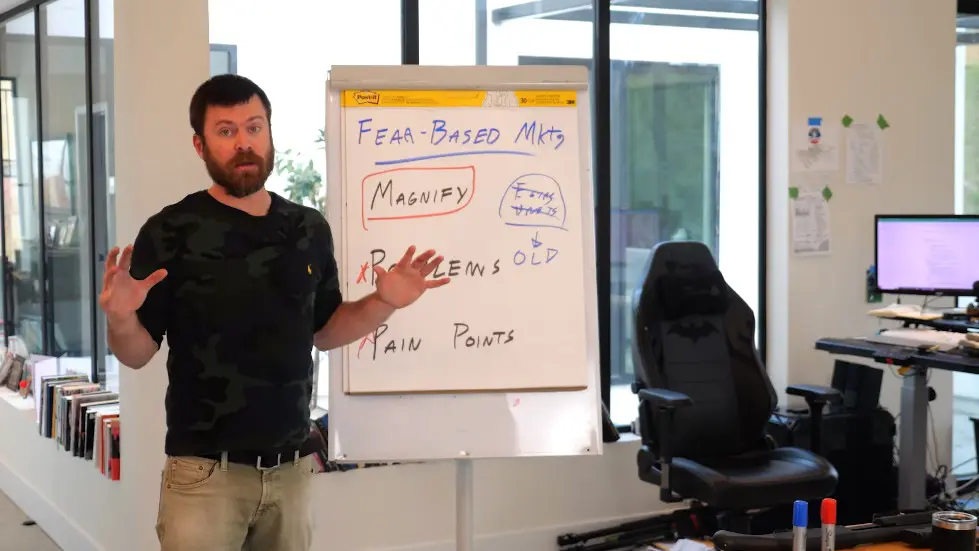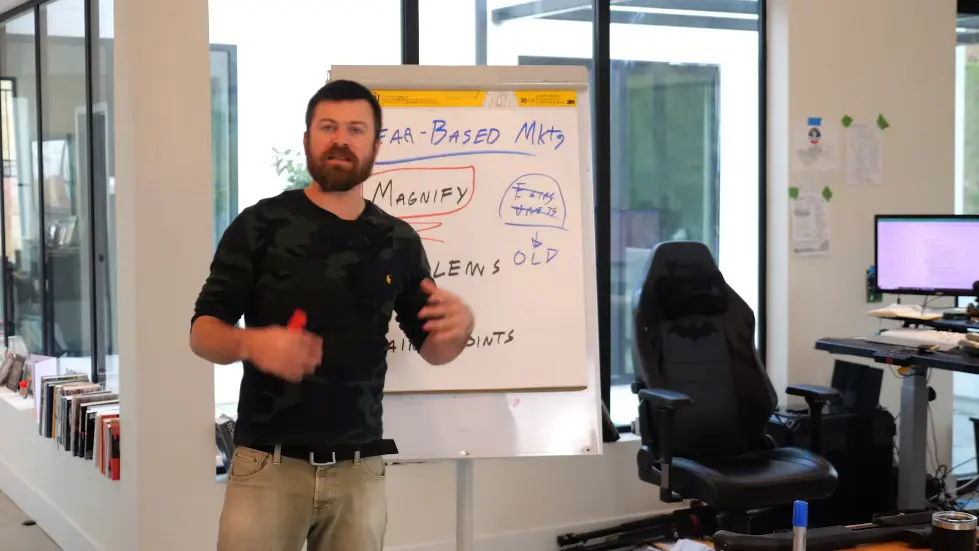Fear Based Marketing: Does It Sell?
Last updated: Jul 30, 2023
This video is about fear-based marketing and how it can be the most effective form of marketing, but the speaker warns against using it in a manipulative or dishonest way and emphasizes the importance of being ethical and considerate when using fear-based marketing techniques.
This video by John Crestani was published on Feb 11, 2023.
Video length: 13:46.
The video discusses the concept of fear-based marketing and its effectiveness in selling products or services.
The speaker emphasizes the power of fear-based marketing but also warns against using it in a manipulative or dishonest way. They explain that fear-based marketing involves identifying the problems and pain points that customers have in their lives and using those to market a product or service.
The speaker gives examples of specific pain points, such as feeling guilty about not being able to afford an expensive item or hating going to work every day, and explains how addressing these pain points can help sell more products.
- Fear-based marketing is effective, but can be manipulative or dishonest.
- It is important to use fear-based marketing ethically and considerately.
- Do not use fear-based marketing to sell products to inappropriate customers.
- Identify problems and pain points in customers' lives to use fear-based marketing effectively.
- Getting specific with customers' pain points will help sell more products.
- Professional marketers focus on the benefits of a product, not just the features.
- Fear-based marketing magnifies problems and taps into emotions to sell products.
Fear Based Marketing: Does It Sell? - YouTube

Section 1: Introduction to Fear-Based Marketing
- Fear-based marketing is the most effective form of marketing.
- However, it can be used in a manipulative or dishonest way.
- It is important to be ethical and considerate when using fear-based marketing techniques.

Section 2: Using Fear-Based Marketing Ethically
- Do not use fear-based marketing to sell products to customers who shouldn't be buying them.
- Examples of unethical use include advertising gambling programs to gambling addicts or weight loss products to anorexics.
- Market in an honest and authentic way, following local and state laws.

Section 3: Three Ways to Use Fear-Based Marketing
- Identify the problems and pain points that people have in their lives.
- Examples of problems include paying too much money on mortgage or student loan bills, not making enough money, or having extra fat or wrinkles.
- Go deeper and identify specific pain points related to these problems, such as feeling guilty when ordering an expensive item at a restaurant or feeling trapped in a job you hate.

Fear Based Marketing: Does It Sell? - YouTube
Section 4: The Importance of Specific Pain Points
- Getting specific with customers and their pain points will help sell more products.
- Examples of specific pain points include feeling guilty about not having enough money to order a certain item at a restaurant or feeling trapped in a job with a demeaning boss.
- Identifying and addressing these specific pain points will resonate with customers and make them more likely to buy.

Amateur Marketers vs. Professional Marketers
- Amateur marketers focus on the features of a product, such as the ingredients.
- Professional marketers focus on the benefits of a product, such as looking and feeling younger.
- Features vs. benefits is the difference between amateur and professional marketing.
- Professional marketers understand the importance of selling the transformation and emotional experience.
- Professional marketers know that selling the benefits is more effective than selling the features.

The Dark Side of Marketing
- Fear-based marketing focuses on problems and pain points.
- Magnifying the problems and pain points makes them more likely to buy.
- Fear-based marketing taps into emotions like jealousy, anger, and guilt.
- Creating worst-case scenarios and magnifying the problems helps sell the product.
- Cherry-picking customer testimonials that speak to these pain points is effective.

The Power of Magnifying Problems
- Creating massive problems and worst-case scenarios makes the customer feel the need to buy.
- Using fear-based marketing, such as the fear of aging, can be highly effective.
- Skin care is a huge market that has been around for thousands of years.
- Magnifying the problems and pain points in your marketing materials helps sell the product.
- Cherry-picking customer testimonials that highlight these pain points is crucial.

The Importance of Ethical Marketing
- While fear-based marketing can be effective, it is important to use it ethically and considerately.
- Manipulative or dishonest fear-based marketing is not recommended.
- Being honest and transparent with customers is crucial for long-term success.
- Focus on providing value and solving real problems for customers.
- Ethical marketing builds trust and loyalty with customers.

Section 1: The Power of Fear-Based Marketing
- Fear-based marketing can be the most effective form of marketing.
- Using stories of extreme pain points and magnifying them can create a powerful emotional response in potential customers.
- Testimonials that highlight how a product or service saved someone from a dire situation can be a powerful tool in fear-based marketing.
- By tapping into people's fears and insecurities, fear-based marketing can create a sense of urgency and drive action.
- When done ethically and considerately, fear-based marketing can be a valuable tool for businesses.

Section 2: Implementing Fear-Based Marketing
- Fear-based marketing can be implemented through copy, testimonials, brochures, business cards, and other marketing materials.
- Specific examples of fear-based marketing techniques are not provided in the video, but they can be found in various marketing channels.
- Calling out pain points and making them feel real is a key aspect of fear-based marketing.
- The speaker encourages viewers to subscribe to their channel for more marketing insights and tutorials.
- The speaker has a successful track record in online marketing and offers to help viewers start their own online businesses.
- The ultimate goal of fear-based marketing is to help individuals achieve financial freedom and pursue their dreams.
Watch the video on YouTube:
Fear Based Marketing: Does It Sell? - YouTube
Related summaries of videos:
- 14 Ways to EARN MONEY from Amazon
- I Took a Year Break From Youtube. Heres What I Learned
- I Spent Over $1m building a house. Heres what I learned
- How To Raise Venture Capital
- How To Become Rich - 7 Mindsets For Building Wealth
- I Competed In A Startup Incubator. Here's What I Learned
- What Is An Evergreen Opportunity?
- How Influencers Make Money
- Fear Based Marketing: Does It Sell?
- I Made a TV Infomercial Here's What I Learned
